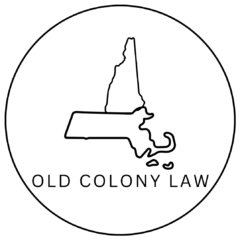Boston.com touches on the Massachusetts estate tax debate, noting that Raise Up Massachusetts, the group behind the so-called ‘millionaire’s tax’ amendment, is opposed to the Healey Administration’s estate tax proposal:
But the group also argued Healey’s $742 million plans for tax relief, especially those that will benefit the state’s wealthiest residents by slashing the capital gains tax and increasing the estate tax threshold, “would ultimately undermine the Fair Share Amendment’s goals of a fairer tax system and greater investment in critical public goods.”
“Tackling the real challenges to the Commonwealth’s economic competitiveness — from working families’ struggles to afford housing and child care, to our economy’s need for an educated workforce and safe and reliable transportation infrastructure — will require making significant investments over the coming years, not giving enormous tax breaks for wealthy stock traders and multi-million-dollar estates,” the coalition said in a statement.
“While the Governor’s budget proposes several meaningful new initiatives, it doesn’t come close to making the investments necessary to address our workforce challenges, tackle our broken childcare system, end the housing affordability crisis, or fix the MBTA and build a 21st century statewide transportation system,” the statement continues. “Instead, a massive permanent tax cut for the wealthy would most likely lead to catastrophic budget cuts the next time we hit a recession.”
Under her tax relief plan, the governor is proposing to eliminate the estate tax for all estates valued up to $3 million and to cut the short-term capital gains tax by more than half, from 12% to 5%.
Appearing on GBH’s “Boston Public Radio” Thursday, Healey defended both tax cuts, reiterating that Massachusetts is an outlier in its approach to both taxes and that by changing each, the commonwealth will be more competitive on the national stage.
A 5% capital gains tax is more closely in line with other states, Healey contends.
“I’m really focused on affordability. I’m also just focused on competitiveness,” Healey said Thursday. ” … People [are] making really real-time decisions right now about whether they’re going to move to New Hampshire, move down to North Carolina, to Florida, to Texas. We had 100,000 people leave our state in the last year-and-a-half.”
On the estate tax, Massachusetts is one of only 12 states with such a tax and shares the lowest threshold for taxation among the dozen, except for Oregon.
Healey indicated Thursday her thinking on where the estate tax threshold should fall has evolved over time, at least in part, because of the state’s high cost of housing.
As property values have greatly appreciated over the past several decades, families with middle-class incomes but valuable property can be subject to the estate tax, which currently kicks in at $1 million, Healey explained.
This post is a part of Old Colony Law’s Estate Tax Updates.
